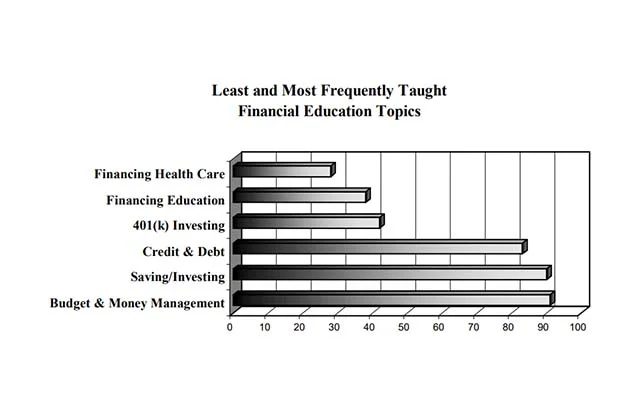Everyone is wired differently. Our hobbies, anxieties, and aspirations are all unique. Understanding the psychology of money can assist us in being more conscious of our thoughts, feelings, and actions. Our today’s article is about how our personal finance dependent upon our behavior.
Even menial things like following saving tips for summer or searching for promising investment opportunities can be regulated by our behavior. For example, if we feel like it, we may spend more cash in the heat of the moment than we would like to.
Sometimes, one rash decision can lead to significant consequences. This is why learning more about our biases and tendencies can help us reach our financial goals.
What Is the Money Psychology?
The psychology of money is the study of human financial behavior. Money success is not determined by knowledge, IQ, or arithmetic ability. It comes down to behavior, and everyone is more prone to certain tendencies than others.
Once you are conscious of your patterns, you may use the power of your own mind, thoughts, and will to truly transform your life. Do you the kind of person that would prefer to get $50 instantly loan when an uncertain time comes up or would you better upgrade your financial literacy and start smart investing?
Personal finance is strongly tied to the idea of money psychology. Personal finances are intimately linked to our upbringing and personalities, which is why they are so. It’s important to be conscious of how our beliefs influence the financial choices we make, and how we may be undermining our best attempts despite our best efforts to learn more. You can monitor, respond to, and even modify your personal financial behavior.
If you’re wondering why personal finance is so dependent on your behavior, consider the following typical biases or human qualities that might derail a sound financial strategy. At the very least, you should be aware of them.
Human Characteristics That Might Derail A Successful Financial Strategy
If you’re wondering why personal finance is so dependent on your behavior, consider the following typical biases or human qualities that might derail a sound financial strategy. At the very least, you should be aware of them.
Following Trends
People react to financial news in the same way as a herd of wildebeest does. New capital flows in response to recent performance.
Although it is true that “past performance is not indicative of future performance,” this does not prevent people from completely ignoring the basic principle of efficient markets.
Everyone enjoys a good trend or pattern. People, however, will too readily construct their own, which will very certainly entail supporting winners and dumping them out of a ‘losing’ Fund.
Accepting the bogus connection that one Fund that did well at random last year would do well again this year (all else being equal) is like believing that since a coin fell on heads 10 times in a row, the chances of it falling on heads again are anything other than 50/50.
According to the study, more than half of American households (56%) are behind where they should be in saving for a secure retirement. This suggests that for many people, behavioral habits and lack of financial literacy prevent them from providing themselves with age. Many people need to pull themselves together and develop the right financial habits.
The Planning Error
Most of us want to feel in charge of our lives, including our investing performance. Feeling in control all the time might lead to an overestimation of our talents, mixed with a dash of optimism.
We underestimate the time it will take to complete tasks, the expense of doing so, and the likelihood that the outcomes will surprise us on the positive side.
As a result, activities take longer to accomplish, projects go over budget, and investment targets are not realized. There are no shortcuts to long-term investing, and no amount of study or chart analysis can help you increase your money.
Loss aversion
You don’t have to be a financial genius or be in touch with your inner self to recognize your unwillingness to accept any type of loss. Most individuals would rather forfeit the possibility of a gain than risk experiencing a loss if given the opportunity.
Fear of loss leads to risk aversion, just as fear leads to the evil side. If you want to create a respectable retirement balance, you must be willing to take on some risk.
You can’t allow your fear of losing money to keep you from putting your money at risk. Diversification may help control risk, but cash beneath the mattress will just produce fish moths.
How to Reduce the Impact of Your Behavior on Your Personal Finances
Budgeting
We suggest monitoring your expenditures for a few weeks to get a sense of how much money is coming in and going out of your home, and even better, automating this process by linking your bank accounts to an app like Personal Capital.
These tools enable you to easily review your spending history over a longer period of time (such as 90 days) and will automatically categorize your expenditures for you, allowing you to see how much money you’re putting toward things like food, housing, utilities, entertainment, loans, and transportation.
Seeing where your money is going might help you set realistic financial objectives based on your actual spending patterns rather than what one finance guru thinks your life should look like.
Financial Self-Sacrifice
Consider being late on a credit card payment to learn how financial self-compassion works in practice. You might practice financial self-compassion first by practicing mindfulness. You may offer compassion and common humanity to yourself by stating, “While it’s not ideal, it’s also not the end of the world that I missed the due date on that credit card statement.” This is not taught in school, and much of the language is bewildering and intimidating. “I’m not the only one who has made a financial error.”
Keep the good momentum continuing once you’ve exercised financial self-compassion. Create that credit card bill to autopay, and set a calendar reminder to check your credit card account at least once a month.
Celebrate Your Financial Successes
Celebrating financial achievement has a strong impact. It promotes our ability to improve our relationship with money when we applaud our accomplishments along the road. According to research, the more often we feel a feeling of progress, such as a “little victory,” the more likely we are to maintain that good behavior. And what about the money? The more we celebrate such victories, the more we prove that we can all be excellent with money.
Even Better is here to provide you with well-researched, practical advice to help you live a better life. Have a question regarding money and job, relationships, family, and community, or personal development and health? Fill out this form to send us your inquiry. We could make it into a tale.
In Conclusion
We may choose to modify our habits no matter how they got into our life if they aren’t moving us in a beneficial manner.
All of this information shows how simple it is to begin making great adjustments in our personal finance. Making beneficial changes does not have to be difficult. We may notice our present actions and choose to behave differently or stay with our current patterns. You have an option in any case.











